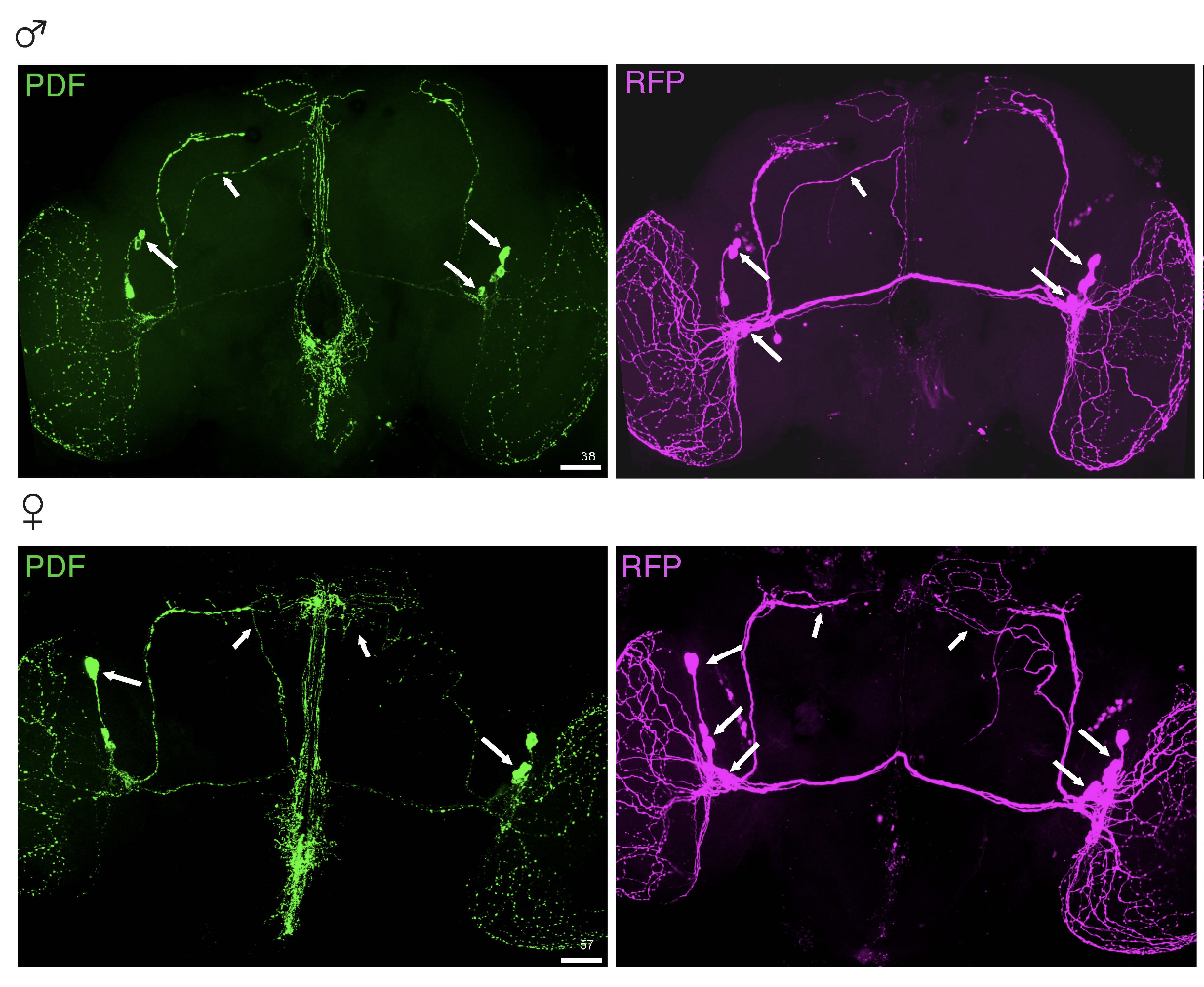The circadian system regulates the timing of multiple molecular, physiological, metabolic, and behavioral phenomena. In Drosophila as in other species, most of the research on how the timekeeping system in the brain controls timing of behavioral outputs has been conducted in males, or sex was not included as a biological variable. The main circadian pacemaker neurons in Drosophila release the neuropeptide Pigment Dispersing Factor (PDF), which functions as a key synchronizing factor in the network with complex effects on other clock neurons. Lack of Pdf or its receptor, PdfR, results in most flies displaying arrhythmicity in activity-rest cycles under constant conditions. However, our results show that female circadian rhythms are less affected by mutations in both Pdf and PdfR. Crispr-Cas9 mutagenesis of Pdf specifically in the ventral lateral neurons (LNvs) also has a greater effect on male rhythms. We tested the influence of the M-cells over the circadian network and show that speeding up the molecular clock specifically in the M-cells leads to sexually dimorphic phenotypes, with a more pronounced effect on male rhythmic behavior. Our results suggest that the female circadian system is more resilient to manipulations of the PDF pathway and that circadian timekeeping is more distributed across the clock neuron network in females.
https://www.biorxiv.org/content/10.1101/2024.01.31.578273v1
